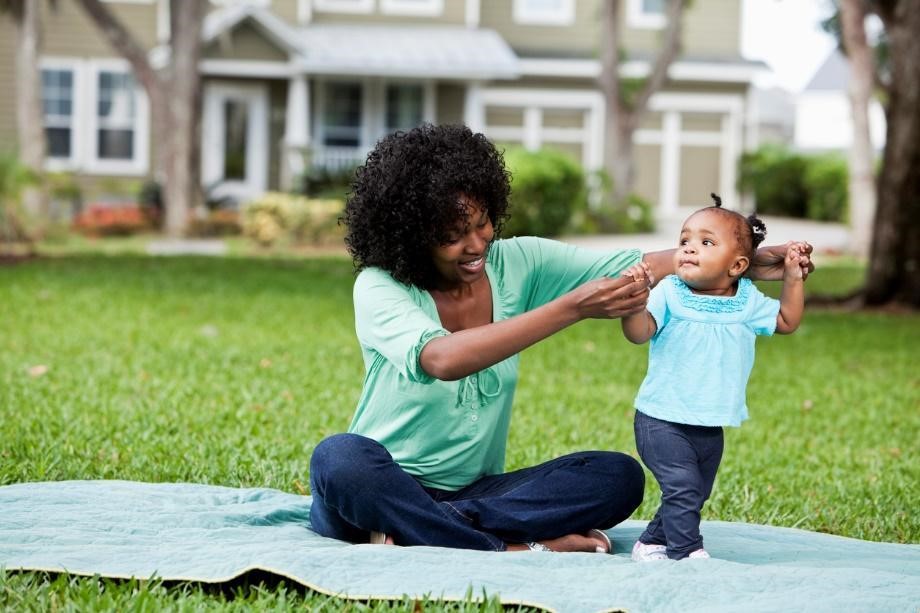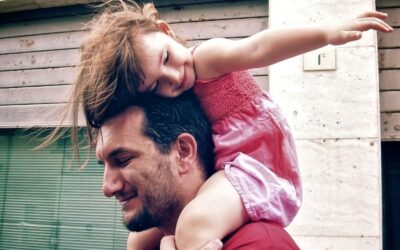Help encourage the muscle development necessary for your baby to meet important milestones
As the parent of an infant, it’s amazing to witness your baby to develop new skills and meet growth milestones. Babies grow at an impressive rate and acquire new interests and abilities at a surprising pace. Watching your baby’s personal growth is amazing and inspiring and keeps you on your toes as they go from being practically immobile to ready to go.
Infants go from calmly lying in their cribs to chasing after household pets in what seems like the blink of an eye. They are explorers and adventurers, and you are their security guard and travel guide on this journey through life. Help your baby achieve developmental milestones with ease by positioning them in ways that will help them naturally build strength.
Neck muscles
One of the first milestones of infant development is achieved when your baby can hold their head up without support. Developing neck strength is important because your baby can’t look around and observe the world as well if they can’t lift and hold their head up independently. Your baby learns a lot through observation, and this simple act gives them a tiny taste of independence.
Consider the following suggestions to help your baby build upper body strength:
- Compared to the rest of their bodies, an infant’s head is heavy. Always support your newborn’s head and hold your baby close to your chest as you talk so that they will get accustomed to looking up at you as they track your voice.
- As you lay your baby down to sleep, position them in their crib different ways each time. Always place baby down on their back, but lay them so that their feet are pointing in a different direction so that they are motivated to turn their heads in order to see new sights.
- Tummy time is essential for building upper body strength. Spend time each day supervising your infant as they play on a mat or blanket on the floor while lying on their stomach. Although they may not always enjoy the exercise, tummy time helps babies learn to lift and turn their heads and eventually push up on their arms. Around four months old, many babies can prop themselves up and control their head movements. Tummy time also helps infants develop core muscles as well as the foundational movements necessary to be able to roll over unassisted.
Core muscles
Core muscles help stabilize and control the torso and are involved in most motor skills, as well as acts such as sitting unsupported and, eventually, crawling. Once your baby can sit without support, they can more easily play with toys, look around, and entertain themselves. Work on developing core strength with the following ideas:
- Help baby practice sitting by placing them in a seated position in front of you as you hold their arms or hands. Games such as pat-a-cake offer a fun way to work on this skill. You can also use rolled-up towels, blankets, or pillows to encourage short periods of unassisted – but always supervised – sitting. The wobbling babies do as they start learning how to sit helps them develop a sense of balance and builds core strength. Most babies can sit unsupported between the ages of six and eight months old.
- Core strength is also critical to learning how to crawl. Provide your baby with plenty of safe, open space to move. The first sign that babies are ready to learn to crawl involves getting up on all fours and rocking back and forth or pushing back on their hands and landing on their bottoms. It may look like a clumsy start, but they’re building strength and learning how to coordinate their bodies for movement. Help your baby by rolling a ball or by placing tempting toys just out of reach to encourage scooting. Most babies will start crawling between seven and 10 months old.
Leg strength
Babies use their newly discovered core muscles and unsure sense of balance to pull up on items to experiment with taking their first steps. Support their journey with the following tips:
- Between the ages of 12 and 18 months, your baby becomes a toddler and is ready to expand their movement-related skills. Help your baby find their center of gravity by providing support as they stand. Start by offering your hands and guiding them up and onto their feet. Once they master that, make sure there are plenty of safe and stable items around that they can practice pulling themselves upon.
- Once they’ve mastered standing, your baby may be ready to take their first steps. These awkward attempts are a monumental milestone. The best thing you can do to support these efforts is to remain positive, celebratory, and most importantly – calm. Your baby is going to fall down often and will look to you for a reaction when these small setbacks happen. Don’t loudly exclaim or act as if they’re injured. Just give them a quick and quiet once-over to make sure they’re OK and get them back on their feet with some lighthearted encouragement.
Watching your baby grow comes with a full range of conflicting emotions: joy over their new skills, sadness over the passage of time, hope for the possibilities their independence will offer, and humor over the silliness that independence inspires – and it’s all exciting. Help give your baby a solid foundation for growth by supporting the development of the muscle groups necessary to master important skills that will contribute to their overall growth and success.
The Virginia Infant & Toddler Specialist Network helps improve the quality of care for infants and toddlers through extensive resources, services, and education for caregivers. Learn more about how we can help you improve the standard of care.




